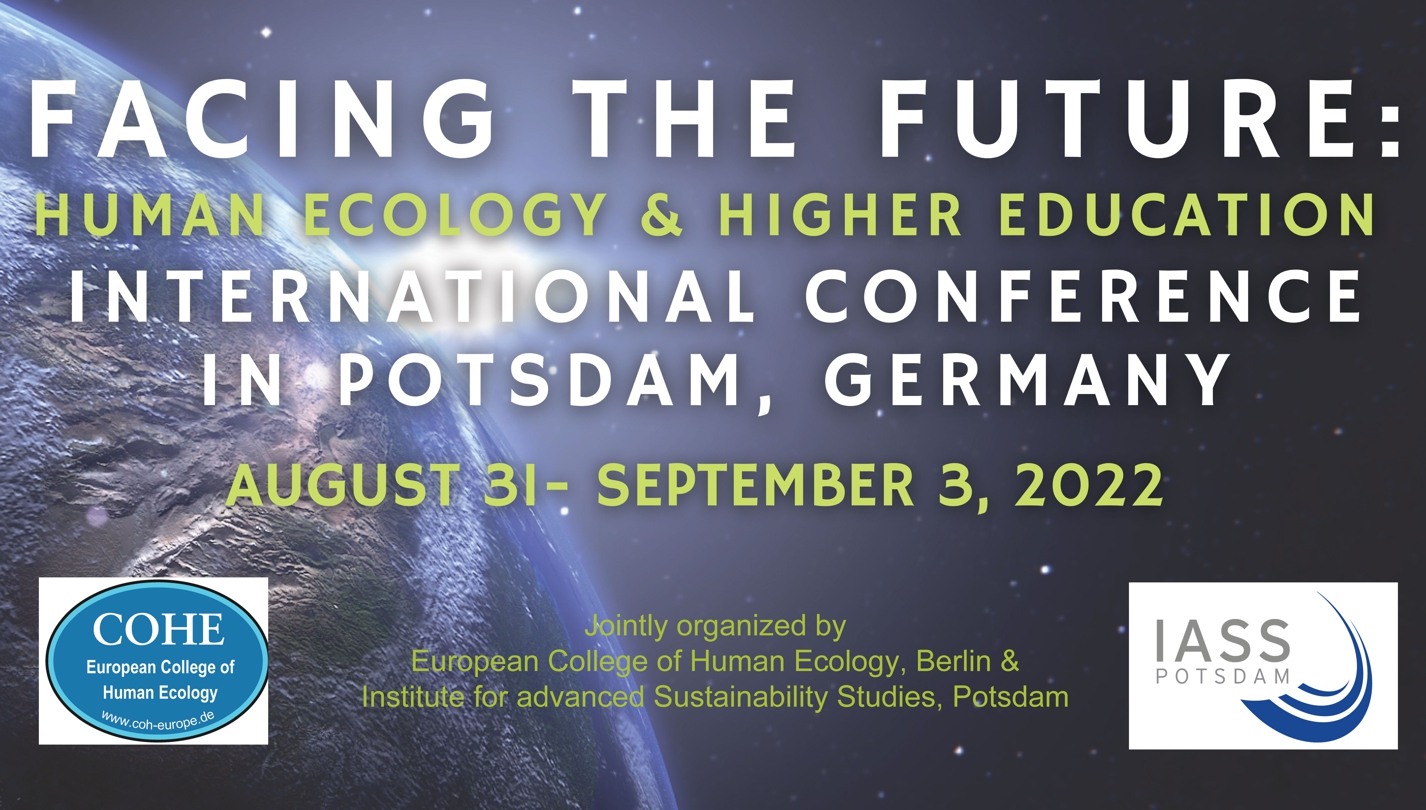- Category: Uncategorised
- Written by Super User
- Hits: 25512
Conference Objectives 2022
Conference Objectives
We are living in a time of multiple crises, challenging the way we create, process and transfer knowledge. Climate change, biodiversity loss, pandemics, land overuse and growing social inequalities in many countries are indicators that socio-technical, but also cultural change is needed. We have learned recently that a young generation worldwide is asking for this change in order to prevent us from further leaving the safe operation space for humankind. What should this generation learn, what professional training is needed, and where and how can it learn? Don't’ we need a much better integration of learning about and transforming systems at the same time? And, doesn't this challenge the idea of one-way learning? If so, what would be the profile of a higher education institution that is prepared to educate these future-oriented generations? We want to address this challenge at this conference.
We are convinced that a reorientation of higher education is urgently in need. Current and future generations of students must be able to shape the most important global challenges towards socially and ecologically just developments. There is an urgent need to develop concepts for managing change in our societies that do not come at the expense of others and nature. The promotion of such competencies for structural and cultural change should be the goal of future education.
A holistic approach is required, based on participatory co-design to improve processes systematically involving new directions and creative rethinking of learning and research. Collaborative efforts are necessary in higher education, including democratization of universities at all levels. The conference could provide the impetus to establish an academy, center, or institute for new substantive and methodological directions in higher education to launch this process.
Human ecology can make an important contribution to these new directions in higher education. It sees human beings in all their cultural, social, economic, technological, intellectual, and communicative endeavors, in their beliefs, hopes, and fears, as an indivisible component of an evolution of creatively interactive ecological processes. As a crossover discipline, human ecology has consistently combined experience and knowledge from a wide variety of professions and scientific disciplines into concepts of inclusion since its inception. Based on the international Manchester Declaration of 2009[1], it provides a variety of cross-disciplinary concepts and methods to support the processes we need in higher education
We are convinced that human ecology can be an important driving force in Europe; for the necessary organizational, cultural and technological change and the associated social and political new orientation.
The European College of Human Ecology has published a first draft of an international master program[2] that could become accredited in Germany. Furthermore, the conference can give the impulse to establish human ecological study programs integrated in an institute for new ways in higher education. For this purpose, a unification of the European human ecological forces makes sense and we therefore particularly welcome contributions and experiences from Europe but also internationally from other perspectives, disciplines and contexts.
Wolfgang Serbser, Ortwin Renn, Fritz Reusswig, Dieter Steiner, Parto Teherani-Krönner
-----------------------------
[1] https://www.coh-europe.de/index.php/en/college-program/manchester-declaration-2009
[2] https://www.coh-europe.de/index.php/en/college-program/handbook-ma-program
We look forward to your contributions and active participation.
Deadline for early bird registration is June 30th 2022.
See more details at conference call and the conference registration.
Conference Committee

